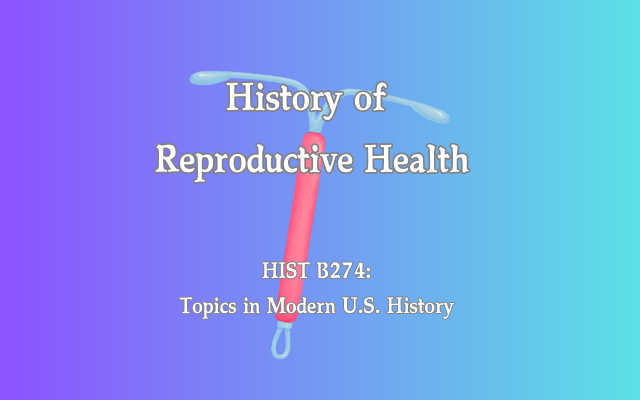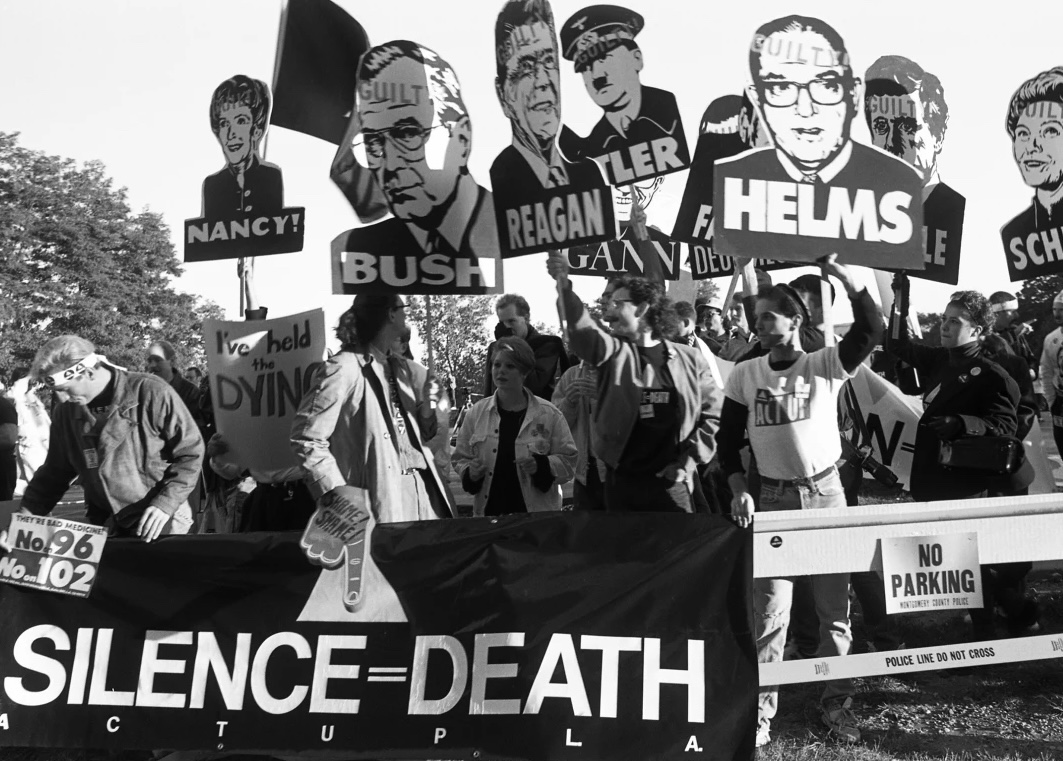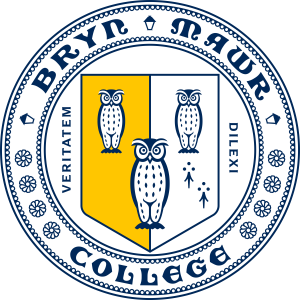- Instructor of record: Ignacio Gallup-Diaz
- Instructor of record: Madhavi Kale
- Instructor of record: Anita Kurimay
- Instructor of record: Ignacio Gallup-Diaz

- Instructor of record: Kelly O'Donnell
- Instructor of record: Anita Kurimay

- Instructor of record: Stephen Vider

- Instructor of record: Kelly O'Donnell
- Instructor of record: Ignacio Gallup-Diaz

This course examines transformations in American culture, politics, and society from World War II to the present, focusing on flashpoints of government policy, popular culture, and social activism. We will trace this history with a focus on four central themes: (1) U.S. domestic and foreign policy and the fear of annihilation, from the Cold War, the specter of nuclear warfare, and the War in Vietnam to the War on Terror and climate change; (2) the growth and convergence of movements for social justice, including African American, Latinx, Asian American, indigenous, feminist, and LGBTQ+ rights and liberation; (3) the rise of the New Right, neoliberalism, the reshaping of party politics, and their impact on social welfare, healthcare, and the environment; and (4) the politics of popular culture, especially television, music, and digital media. Across these themes, we will consider where government leaders and popular culture have worked to reinforce social norms and sharpen political divides and how social movements have reshaped American politics and society.
- Instructor of record: Stephen Vider

- Instructor of record: Rubina Salikuddin
- Instructor of record: Anita Kurimay
This course explores history as both a disciplinary and a social practice, examining some of the cultural and intellectual meanings assigned to `history’ by an array of practitioners across time and space. The course aims to help students further develop their skills as readers, critics, researchers and writers, and assignments are designed accordingly (as well as described further below).
This semester, we will use an array of materials (including eye-witness accounts and chronicles, novels, films, historical monographs and ethnographies) and tactics (including writing assignments and class discussions) to explore different experiences, understandings and representations of some of the institutions (home, family, State, nation), phenomena (migration, trade, travel), and analytical categories (gender, race, class, religion, sexuality) that animate not only contemporary historical practice but also our apprehensions and performances of our selves.
Learning Outcomes: indicated below in bold, in following outline of the course’s pedagogical methodology for achieving them:
This is a reading-, writing-, and discussion-intensive course. Students are expected to come to class prepared to discuss texts assigned for each meeting (not only readings but also films and other visual and aural cultural productions), and (as noted in the assignments schedule below) to turn in any relevant written work on time. Active and informed participation in the class counts for approximately 60% the final grade, which is based on attendance, timely and evident completion of assigned reading, and productive, respectful contribution to class discussion.
A. Attendance: Regular attendance in class and in conference is necessary and required. In accordance with the spirit of the Honor Code, I will not ask you to supply a reason if you miss a class. If, however, illness, family emergency, or religious observation interrupts your attendance, please contact me about it at the earliest opportunity. Missing more than two classes will result in a lower participation grade. You will also meet with me individually at least three times during the semester to discuss your final project. These meetings are mandatory.
B. Reading Assignments: All reading assignments listed in syllabus and on Moodle are to be COMPLETED by class on Mondays. We’ll discuss note-taking and other strategies for effectively making your way through and making sense of the assigned reading, and you should feel free to bring your notes and questions to class with you, either in printed form or on a laptop/electronic notebook, etc.
C. Discussion: One way that you may (and should!) demonstrate that you’ve completed the week’s assigned texts by participating in and contributing to class discussion of them. Learning how to have productive and respectful discussions in a classroom context with people with very different backgrounds and assumptions is among the most important skills to learn and hone in College, and beyond. Very little learning takes place when participants in a discussion feel intimidated, dismissed, belittled or fearful that something they say will be repeated, out of context, outside of class. We will develop a written code of conduct in the course of the semester, updating and revising expectations as we proceed, both collectively and individually.
D. Written Assignments: Word files uploaded to relevant Moodle submission site by the times indicated in syllabus and on Moodle, files AND documents labeled as follows: your name, week of semester, date of submission.
Keep track of these assignments in a portfolio (a folder devoted to them on your computer AND backed up (in a cloud drive like One Drive). Understanding and following sound citational practice is essential and assessment of written work will include evaluation of yours! Late submissions WILL BE PENALIZED. Better to turn in something on time than nothing/something late. These count for the remaining 50% of your grade. Writing assignments are as follow:
1a. Critiques: 8 in the semester: submit by midnight on designated Tuesdays an analytical critique of assigned readings (1,000 words, approximately). The objective here is to develop and sharpen your skills in 1) identifying authors’ arguments, evidence, and expository devices and 2) succinctly and coherently situate them in the context of class presentations, discussions and other readings to date and 3) correctly citing authors’/creators’ interventions (name, title of work, date of production, relevant page/s quoted or invoked. These critiques are another way to demonstrate that you have completed and engaged with the week’s assignment, and can help you to confidently make productive and evidence-based interventions in class discussions, citing where authors/creators have used evidence to make their arguments.
EVALUATION
To repeat: This is a reading-, writing-, and discussion-intensive course. Students are expected to come to class prepared to discuss the reading and/or films assigned for each meeting, and (as noted in the assignments schedule below) to turn in any relevant written or research work on time.
A. Critiques: Due on Moodle by TUESDAYS 5 p on the following dates: January 31, February 7, February 28, March 14, April 11, these will be graded as follows:
1=minimal: assignment submitted with heretofore unfamiliar terms listed and defined + descriptive précis of reading
2=adequate: all of above + analysis of author’s assumptions and expository strategies
3=solid: all above + also critical engagement with analytical implications of reading
4=superlative: all of above + synthesis, relating readings to earlier readings and discussions of historical practice and/or to sight/site/cite project
B. A further 40% the grade is based on timely submission and completion of the three successive drafts of the sight/site/cite project and presentation of your project in class in the final week of the semester. This structured experience of historical research and writing gives you the opportunity to practice what you’re encountering through course readings, in your own engagement with specific sites of historical production. Details TBA, MONDAY by class time submitted to Moodle due dates as follows: First Sight: Monday, October 7; Second Site: Monday, November 4; Third Cite: Monday, November 25; Oral presentations in class December 9 & 11; Final Sight/Site/Cite: last day for written work, FRIDAY December 20 by 12:30 p.m.
The following books are available at the Bryn Mawr College Book Store, and on reserve at Canaday:
Michel Rolphe Trouillot, Silencing the Past Power & the Production of History (1995)*
Natalie Zemon Davis, The Return of Martin Guerre (1983)*
Amitav Ghosh, In an Antique Land: History in the Guise of a Traveler’s Tale (1992)
NOTE: I reserve the right to make changes to the assignments schedule as the semester progresses in order to accommodate and make the most of the unexpected and to enhance both the experience of the course and students’ learning outcomes as I deem appropriate and with due consultation with all in the course.
- Instructor of record: Madhavi Kale
